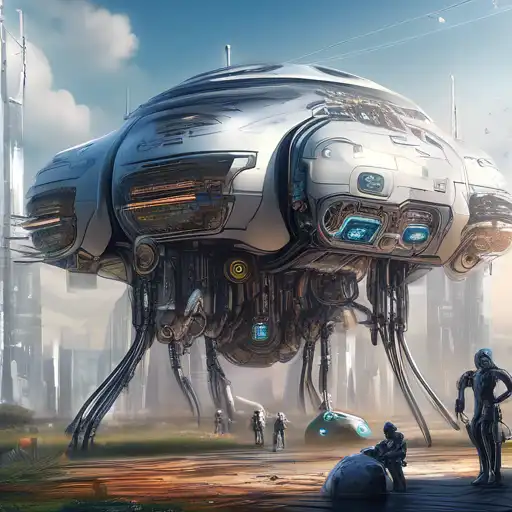Introduction to Artificial Intelligence's Evolution
Artificial Intelligence (AI) has transitioned from a futuristic concept to a cornerstone of modern technology. Today, we stand on the brink of a new era where AI's potential seems limitless. This article delves into the current state of AI, exploring its advancements, challenges, and what the future holds.
The Current State of AI
AI has made significant strides in recent years, with advancements in machine learning, natural language processing, and robotics. These technologies are not just theoretical; they're being applied in real-world scenarios, from healthcare diagnostics to autonomous vehicles. The integration of AI into daily life is becoming increasingly seamless, marking a pivotal moment in technological evolution.
Challenges Facing AI Today
Despite its progress, AI faces several challenges. Ethical concerns, data privacy issues, and the fear of job displacement are at the forefront of debates. Moreover, the complexity of creating AI that can fully understand human emotions and context remains a significant hurdle. Addressing these challenges is crucial for the sustainable development of AI technologies.
The Future of AI: What to Expect
The future of AI is brimming with possibilities. Experts predict advancements in AI will lead to more personalized healthcare, smarter cities, and even breakthroughs in solving climate change. However, the path forward requires careful consideration of ethical implications and the establishment of robust regulatory frameworks to ensure AI benefits all of humanity.
How AI is Shaping Industries
AI's impact is evident across various sectors. In healthcare, AI-powered tools are revolutionizing patient care and research. The finance sector benefits from AI through fraud detection and automated trading. Meanwhile, in education, AI is personalizing learning experiences, making education more accessible to students worldwide.
Preparing for an AI-Driven Future
As AI continues to evolve, individuals and businesses must adapt to stay relevant. This involves acquiring new skills, understanding AI's capabilities, and leveraging AI tools to enhance productivity and innovation. The future belongs to those who embrace AI's potential while navigating its challenges wisely.
Conclusion
The journey of AI is far from over. Its current trajectory promises a future where AI not only augments human capabilities but also opens new avenues for exploration and discovery. By understanding today's advancements and preparing for tomorrow's possibilities, we can ensure a future where AI serves as a force for good.
